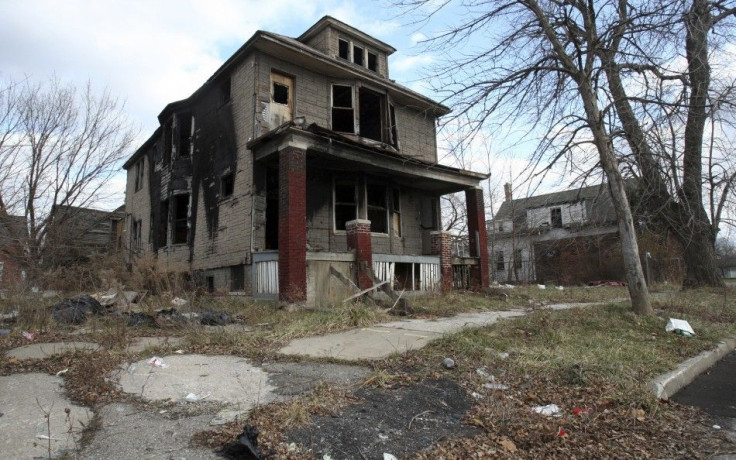Prince Fielder to Detroit: Incredible Wealth in the Poorest City in America

The Detroit Tigers are near to signing free-agent slugger Prince Fielder to a monstrous nine-year contract valued at $214 million, according to reports.
The 27-year-old first baseman (who also happens to be the son of former Tigers home run hero Cecil Fielder) will be going to one of the poorest cities in the United States, perhaps the western hemisphere.
Detroit had become a festering symbol of the decline of the U.S. manufacturing base and the collapse of an urban environment, decimated by joblessness, crime, drug abuse and violence.
The contrast between Fielder’s incomprehensible wealth and the grim poverty of his new workplace could not be more stark.
On an annual basis, Fielder would earn approximately $23.8-million. That figure is more than 800 times the median household income of Detroit, according to the US census of 2010.
Here are some more tidbits about Detroit, Prince Fielders’ new workplace:
*Between 2000 and 2010, the city population plunged by 25 percent to about 714,000 (while it basically remained flat for the state of Michigan), according to the US Census.
*About one-third of city residents (33.2 percent) live in poverty, among the highest such rates in the country for large cities.
*Only 12.1 percent of households in Detroit have someone with at least a bachelor’s degree (versus 24.5 percent for Michigan).
*Only 55.4 percent of Detroiters own their own homes (74.6 percent for Michigan).
*Detroit typically records between 350 and 400 murders every year, making it one of the dangerous cities in the US on a per capita basis.
Joseph Williams of Christian Association for Prison Aftercare, wrote in 2007: “The city of Detroit, in which I live and work, is the poorest large city in America. Michigan has the nation’s worst economy of any state. Detroit has the poorest economy in Michigan…. I see firsthand every day the effects of poverty and crime. In an environment of extreme poverty, system failures abound. For instance, Detroit Public Schools graduate only between 25-40 percent of its students.”.
Moreover, the lives of children and teenagers are particularly harsh in the city.
According to a recent report from an organization called Kids Count in Michigan, more than half (51 percent) of children in Detroit live in poverty (more than double the 22 percent rate for Michigan as a whole). More than 80 percent of Detroit’s public school-children quality for free lunch programs.
© Copyright IBTimes 2024. All rights reserved.











